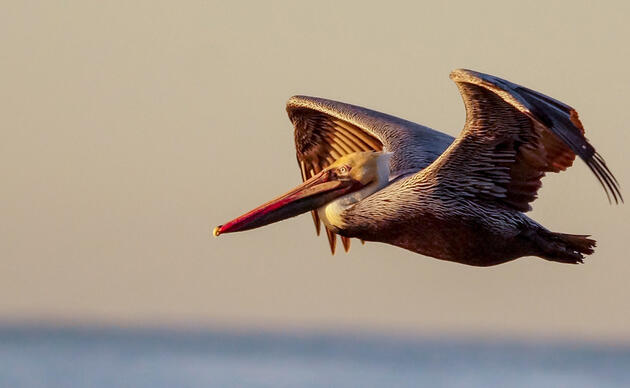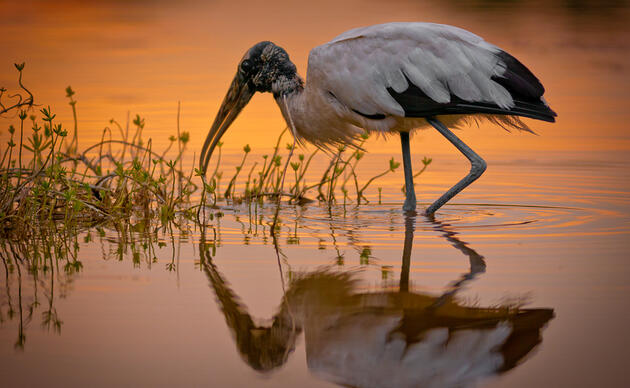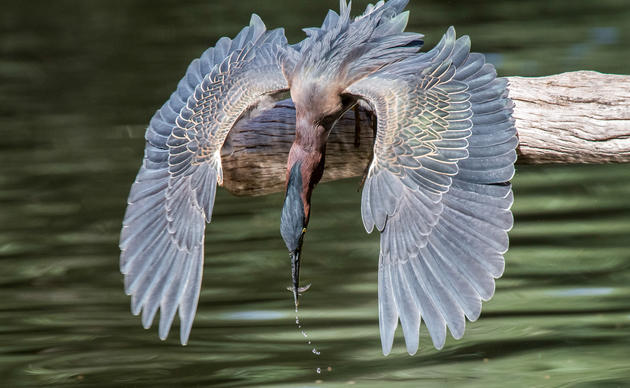Article originally published in the Post and Courier on October 6th, 2023
Written by Rebecca Haynes
The rufa red knot may seem like just another shorebird, but this medium-size bird has an impressive life as a bird with one of the longest migrations. These birds journey annually from Tierra Del Fuego and Brazil in South America to the Artic, and South Carolina stands as one of the crucial resting and refueling stops on this remarkable odyssey. Research shows that at least 42% of the existing red knot population relies on South Carolina beaches. That’s impressive.
And the red knot is not alone. For many birds, South Carolina is the last stop on their epic migration to the Arctic. The Palmetto State plays a huge role in the success of this bird and others. For a state that is so proud of its natural resources, providing safe haven for the red knot is becoming increasingly difficult. Their primary food source — horseshoe crab eggs — is depleting.
As the executive director of Audubon South Carolina, I lead a team that works to protect shorebirds and highlight the critical role our state plays in the future of the red knot. Both visitors and residents alike have marveled at these flocks on our shores. Unfortunately, the red knot is now classified as federally threatened, with several areas in South Carolina proposed to be designated as critical areas by the U.S. Fish and Wildlife Service.
Red knots access horseshoe crab eggs buried in the sand during spawning events that coincide with every new and full moon from March to July, aligning perfectly with their migration. If these important horseshoe crab spawning events are interrupted, crabs will not lay enough eggs to sustain their populations and the most important red knot food source will disappear. The most significant documented disruption to this natural event has been the collection of horseshoe crabs to harvest their blood for use in biomedical applications.
Thankfully, the industry is developing innovations that can reduce our reliance on horseshoe crabs in biomedical applications. Recently, new standards were proposed for these synthetics that would provide important oversight and guidance for a shift to animal-free alternatives — a development we eagerly anticipate.
To ensure red knots continue to grace South Carolina’s shores and the entire Western Hemisphere, we must prioritize a thriving horseshoe crab population. Audubon South Carolina commends the decision to prohibit horseshoe crab harvesting in Cape Romain National Wildlife Refuge, which will guarantee horseshoe crabs an undisturbed opportunity to lay eggs and the red knots an opportunity to rest and refuel. We are also heartened by the recent court ruling that gives us five years of consistency for crab spawning to recover. Thanks to our conservation partners Southern Environmental Law Center, Coastal Conservation League and Defenders of Wildlife, horseshoe crab harvesting is prohibited on an appropriately large number of important South Carolina beaches, and GPS monitoring of the harvest will help ensure compliance.
In the meantime, we will continue to advocate for a long-term commitment to healthy horseshoe crab spawning to support the federally threatened red knot and other species. Prioritizing higher horseshoe crab egg density on important foraging beaches and reducing mortality and disruption of egg laying will continue to be important over the next five years and beyond. By staying focused on this progress, fostering transparency within the industry and ensuring the sustainability of this resource, we can secure a better future for red knots.
Our state has a longstanding commitment to conservation because we understand the integral role our natural resources play in our communities’ well-being. Conservation is vital to local economies, flood-risk mitigation and recreational opportunities. Our diverse landscapes provide safe havens for birds, including the red knot. Protecting the places birds and people need is key to preserving our quality of life and is our mission here at Audubon South Carolina.
Rebecca Haynes is the executive director of Audubon South Carolina.




